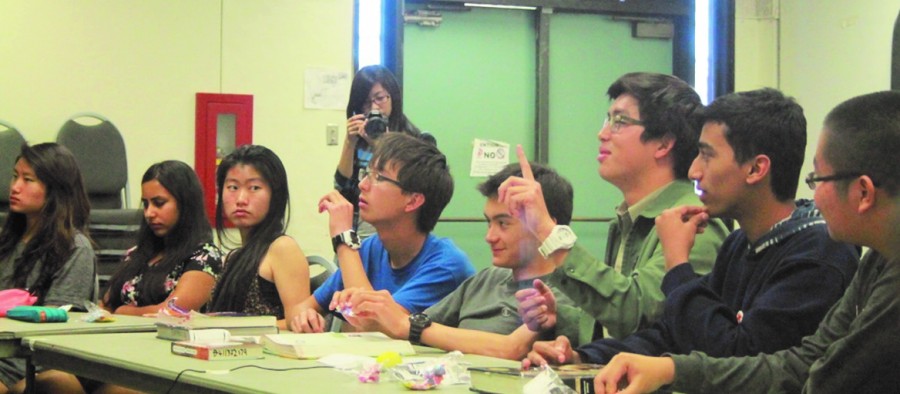Shed the Gender casts light on War Conflict
March 25, 2015
The harmful effects of war on people, specifically women, are topics not that well-known or often explored. However, at Diamond Bar High School, students sought to raise awareness about these issues at their Shed the Gender event on March 13.
About 35 DBHS students attended Shed the Gender. Members of Red Cross told those at the event about the International Humanitarian Law and gender stereotypes during times of war and conflict. They explored how war enforces harmful gender labels, such as the idea of women being weaker than men, leads to sexual violence and objectification. Through videos and an interactive Jeopardy game, the group shed light on this topic and its importance.
“A lot of people have absolutely no idea what International Humanitarian Law is, let alone the effects of gender stereotypes during war…If people have no idea that these rules actually exist, it’s no surprise that no country enforces them, even though they’ve all pledged to enforce it,” stated senior Elmeera Nosrati, one of the DBHS students involved with organizing the event. “To end that we need to start educating the future law makers and politicians about it so maybe the result will be different in the next generation.”
Shed the Gender was not arranged by the club, but rather by the larger organization outside of school. Nosrati, as well as seniors Lorelle Sun, Amy Wong, Crystal Xiao and two girls from Mark Keppel High School, represented San Gabriel-Pomona Valley as a team.
The event itself began with an introduction of the IHL, the law of war and armed conflicts, giving background information, such as its creation at the Geneva Convention, where it was adopted by all nations. The purpose of this law is to limit the effects of armed conflict for humanitarian reasons, as well as to protect innocent people and to restrict means and methods of warfare. It sets rules during times of war that must be followed in order to properly protect civilians and soldiers, such as prisoners of war.
However, this law is somewhat difficult to enforce and not all countries follow its rules, which is why the International Committee of the Red Cross works to make sure that these rules are obeyed.
“International Services is a line of service under the American Red Cross. Besides responding to disasters and managing blood drives, the Red Cross is also responsible for promoting IHL as well as making sure nations are respecting it,” Nosrati said.
After the introduction, the event moved on to the game. Attendees were arranged into teams and had to answer in-depth questions about war, conflict, and the effect on people. This part of the event focused more on gender roles and stereotypes that are instated during war times, as well as the effect of conflict on women and families. The game explored controversial, yet powerful issues like sexual violence inflicted on women and Post-Traumatic Stress Disorder, particularly in rape victims.
After the game ended, a video played with testimonials from survivors of war. One survivor was Nosrati’s father, who lived through and witnessed the Iranian Revolution. He told his story of how war creates genders stereotypes and how difficult these stereotypes made it to survive, especially for women and families. Other commentators included Amy Wong’s parents, who recounted their experiences from the Vietnam War.
“…A lot of the questions we asked were very deep and thought provoking—some very controversial, but ultimately those are the issues IHL deals with; so I think we very successfully taught sensitive subject matter in a fun and lighthearted way. A lot of our participants seemed to have fun, and it was obvious that they were learning things—which ultimately was our purpose,” Nosrati said.




